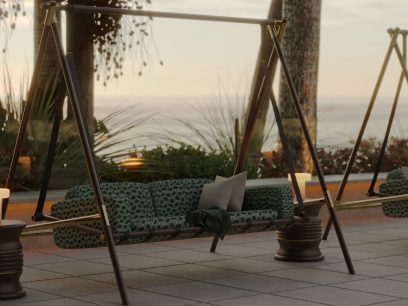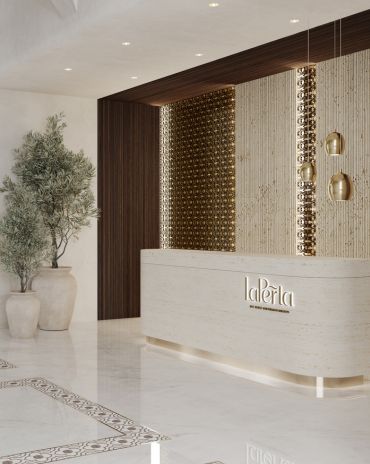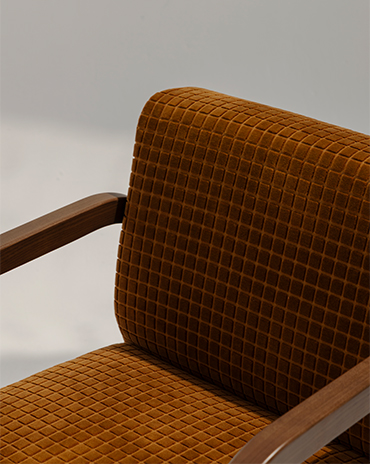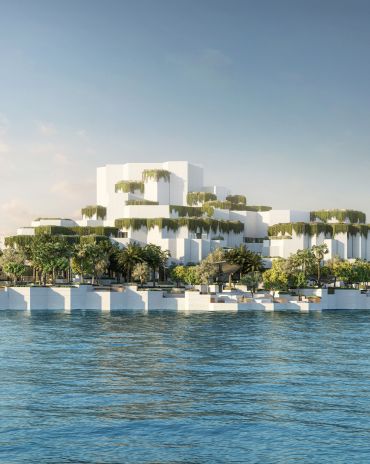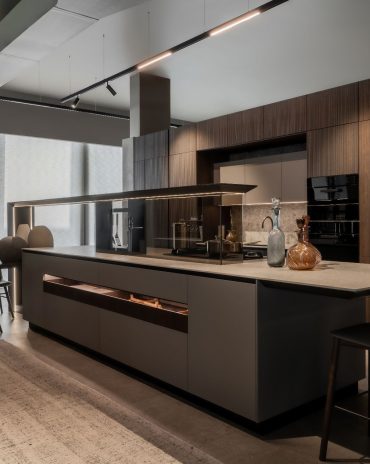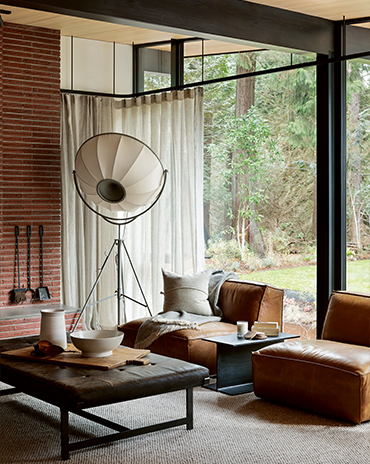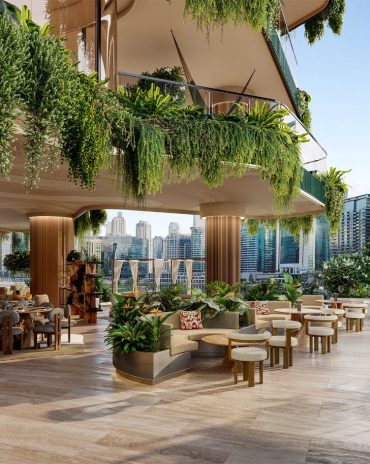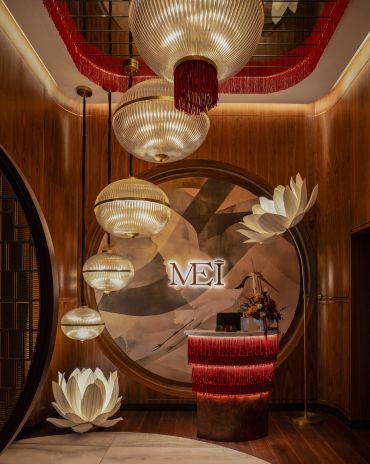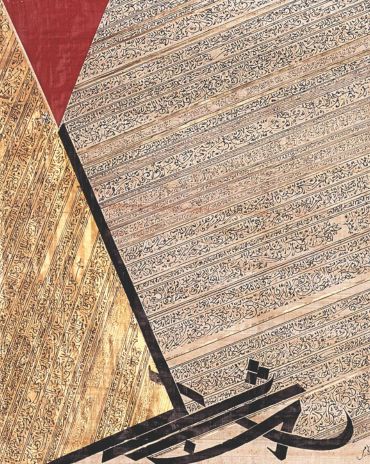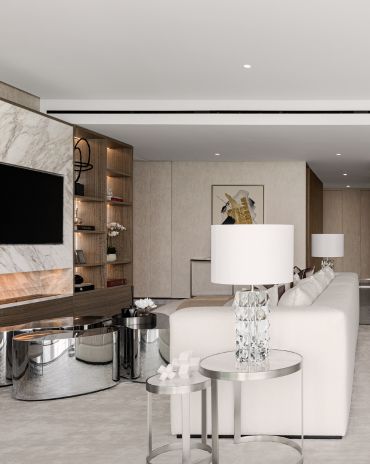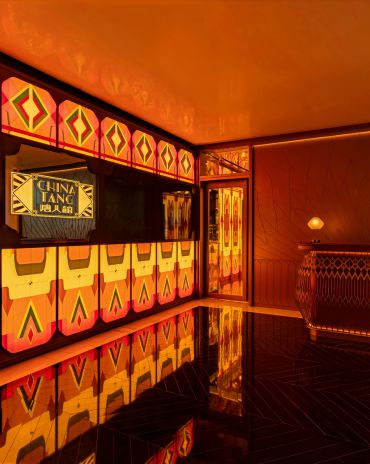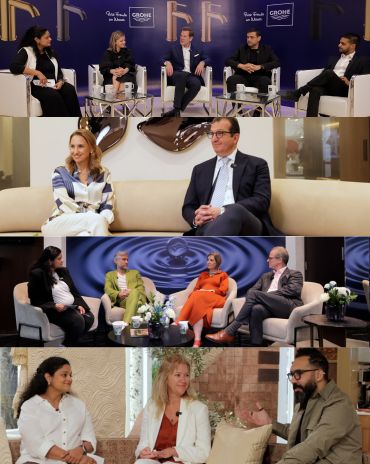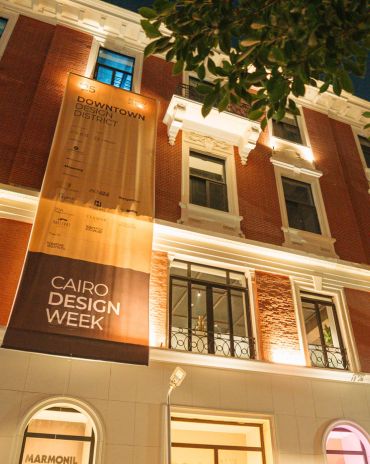Copyright © 2025 Motivate Media Group. All rights reserved.
Expo 2020: The Dutch biotope
The country's pavilion will unite water, energy and food.
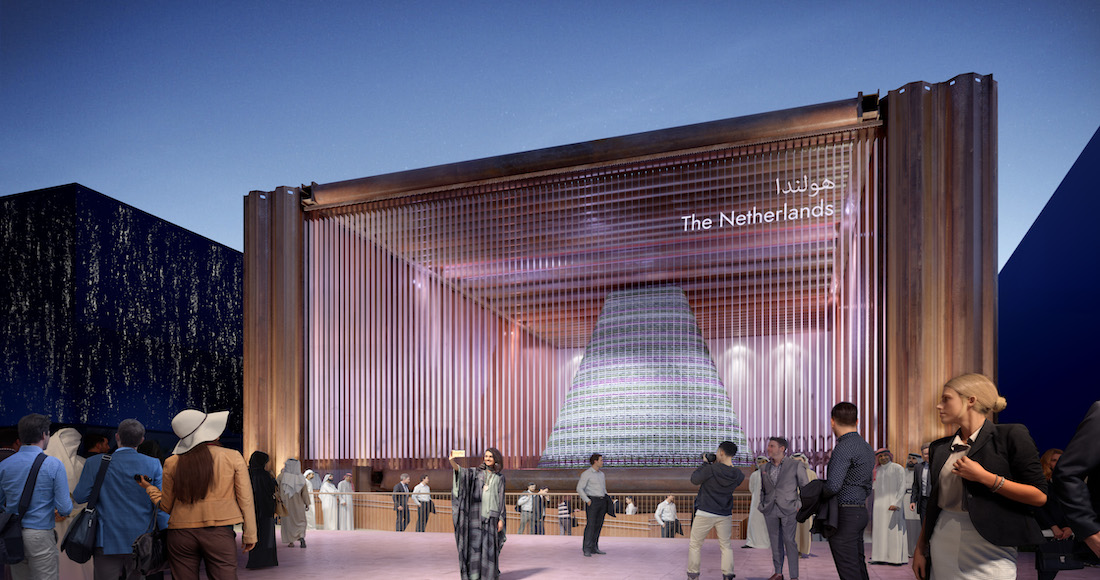
The Dutch have announced the the design for their pavilion at Expo 2020 Dubai pavilion and its theme, ‘uniting water, energy and food’. The structure will feature a unique circular climate system that showcases the Netherlands’ innovative strength.
The pavilion’s unique design gives visitors a powerful sense of the connection between water, energy and food. A circular climate system – a biotope, essentially – provides visitors (tourists and business people alike) with an intense sensory experience. We have designed a miniature world that you can enter, where water, energy and food are intrinsically linked, and the climate is controlled naturally. In a country with a desert climate, the Netherlands is creating a biotope in which everything is connected, enabling us to produce our own water, energy and food.
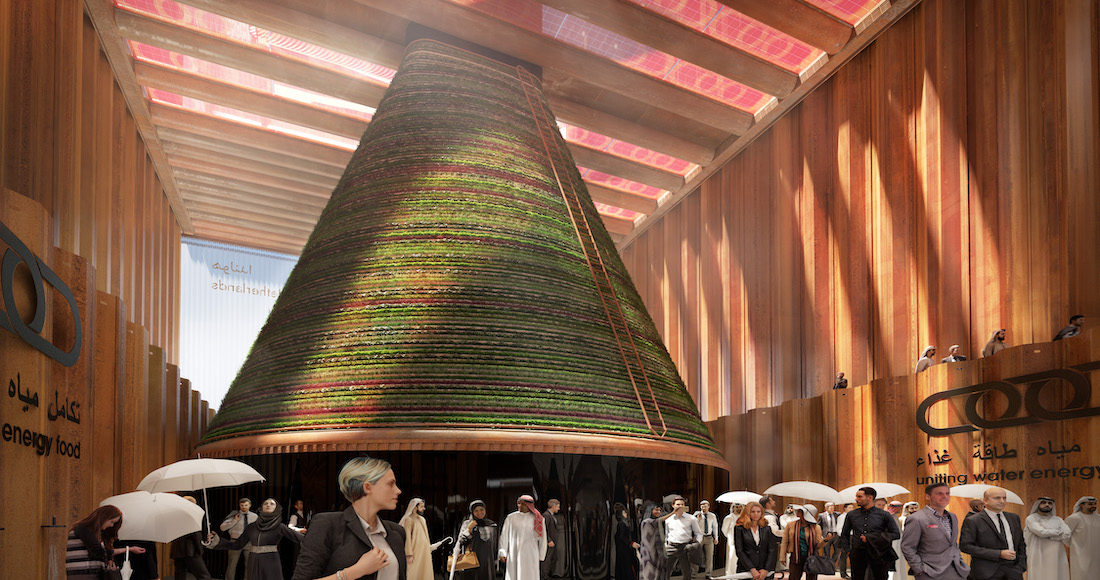
Inside the pavilion
©V8-Architects
‘We’re proud of this wonderful design, which shows what the Netherlands is all about,’ said Dutch foreign trade and development minister Sigrid Kaag. ‘Developing unique integrated solutions that create links, especially in the areas of water, energy and food, where we are world leaders’.
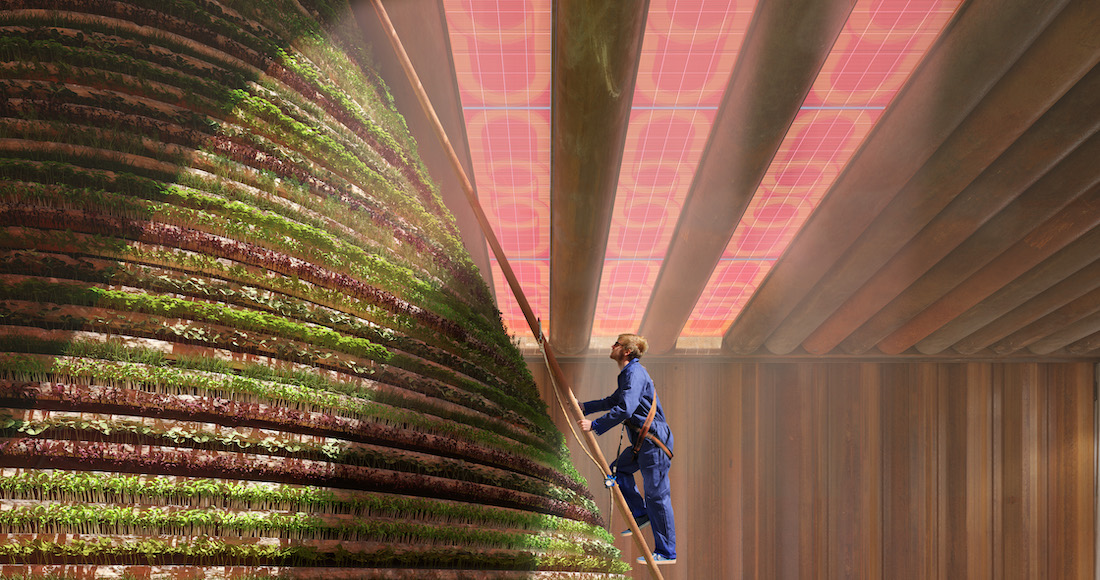
A close-up of the anticipated interior
©V8-Architects
The Middle East is very much affected by global issues such as water scarcity, food security and rising demand for energy. Gulf countries tend to consume more water and energy per capita than many other parts of the world, and the majority of the region’s food is imported. Expo 2020 Dubai offers an exciting opportunity to drive positive change.
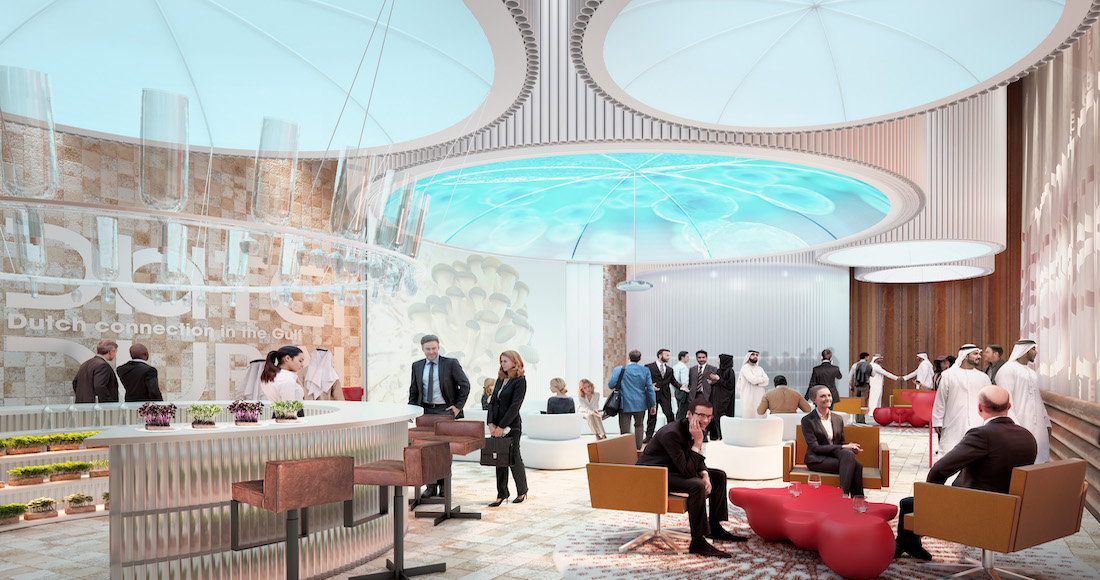
The pavilion lounge
©V8-Architects
This is where the Netherlands is keen to contribute. By showcasing home-grown solutions that link the issues of water, energy and food – and by working closely with Gulf countries to develop sustainable solutions appropriate to their local ecosystems – we can use our innovation, knowledge and expertise to help the region create a greener, more sustainable future.
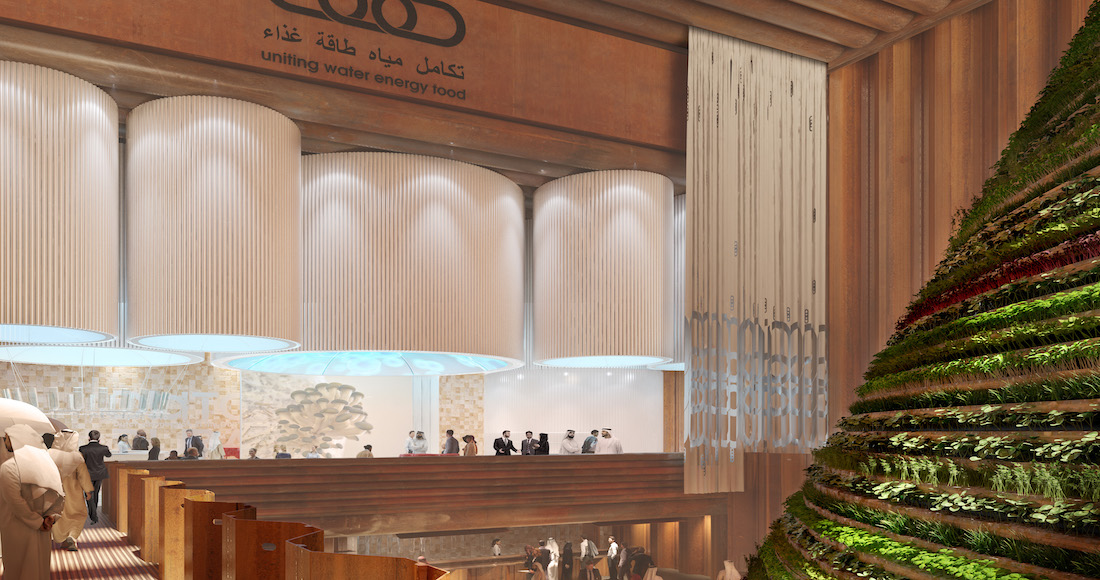
©V8 Architects
Yas Island, Burj Khalifa, Palm Jumeirah, Dubai Canal, the Museum of the Future, the Port of Fujairah and Dubai Airports are all ventures in which Dutch companies have been involved.
The Netherlands is also setting a sustainable example in terms of the building itself. It will be constructed entirely from locally available construction materials, so as to minimise transportation. The interior, too, will feature only rented materials, which will be returned or repurposed at a new destination when the pavilion is dismantled. In this way, its ecological footprint will be minimised.
The Latest
A New Standard in Coastal Luxury
La Perla redefines seaside living with hand-crafted interiors and timeless architecture
Things to Covet
Here are some stunning, locally designed products that have caught our eye
An Urban Wadi
Designed by Dutch architects Mecanoo, this new museum’s design echoes natural rock formations
Studio 971 Relaunches Its Sheikh Zayed Showroom
The showroom reopens as a refined, contemporary destination celebrating Italian craftsmanship, innovation, and timeless design.
Making Space
This book reclaims the narrative of women in interior design
How Eywa’s design execution is both challenging and exceptional
Mihir Sanganee, Chief Strategy Officer and Co-Founder at Designsmith shares the journey behind shaping the interior fitout of this regenerative design project
Design Take: MEI by 4SPACE
Where heritage meets modern design.
The Choreographer of Letters
Taking place at the Bassam Freiha Art Foundation until 25 January 2026, this landmark exhibition features Nja Mahdaoui, one of the most influential figures in Arab modern art
A Home Away from Home
This home, designed by Blush International at the Atlantis The Royal Residences, perfectly balances practicality and beauty
Design Take: China Tang Dubai
Heritage aesthetics redefined through scale, texture, and vision.
Dubai Design Week: A Retrospective
The identity team were actively involved in Dubai Design Week and Downtown Design, capturing collaborations and taking part in key dialogues with the industry. Here’s an overview.
Highlights of Cairo Design Week 2025
Art, architecture, and culture shaped up this year's Cairo Design Week.

